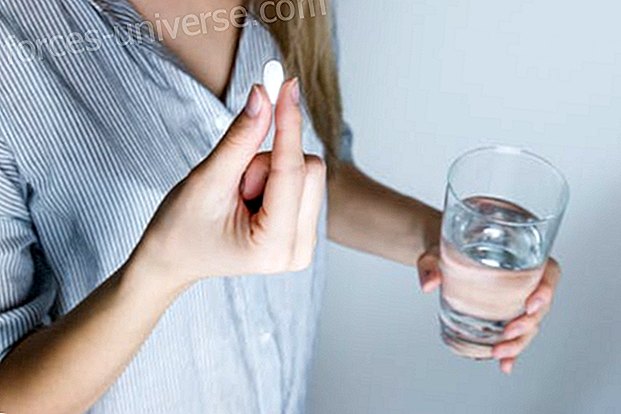
According to the words of Joan-Ram n Laporte, head of the pharmacology service at the Hospital Valle Hebron, commented during his interview in La Vanguardia today, Wednesday, February 2.
Joan-Ram n Laporte adds that the difference between a drug and a poison lies in the dose . The following points should be noted:
1) Drugs that are already on the market should be analyzed because when a drug goes on the market it has been tested by a few thousand volunteers, but when marketed worldwide it is taken by million people and that is when unwanted effects may appear, sometimes with a fatal outcome.
Aspirin is the medicine that has killed more people because it is the medicine that more people have taken and the perception of their risk is distorted. At low doses - one hundred milligrams a day - it is an excellent cardiovascular protector, but at analgesic doses - one gram - it can cause gastrointestinal bleeding .
In Catalonia there are about 3000 annual cases of gastrointestinal bleeding, of which 40% are attributable to aspirin and other anti-inflammatories. In U.S.A. 15, 000 people die from gastrointestinal bleeding due to anti-inflammatory drugs; while 12, 000 die of AIDS.
2) The Spanish are hypermedicated . It even reaches such a point that when a person is sad it is said colloquially that he is depressed. Antidepressants only work for a deep depression, and sadness is not a disease, it is a healthy reaction.
3) There is no medication without unwanted effects, each medication has its toll. The European Medicines Agency estimates that 197, 000 people die every year in Europe due to adverse effects. In U.S.A. adverse effects are the fourth cause of death, behind myocardial infarction, stroke and cancer; and above diabetes, lung diseases and traffic accidents.
If taking or prescribing the medication were more attentive to the risks involved, it is estimated that 65% to 75% of these deaths could be avoided.
4) Announcing drugs on television should be banned In Spain, only those that are not financed by Social Security can be announced, but would be ruined. We are the country in Europe that, in relation to GDP, consumes more medicines.
5) Medications, price and business. Making the most expensive medicine, from one hundred to five hundred euros, does not cost more than two euros including the packaging. Supposedly paid the research effort. But between 30% and 40% of the average cost of the laboratories goes to commercial promotion.
The price of medicines is negotiated by the Government, but with little success. In Spain, the price of the drug is reaching that of Germany, which doubles the per capita income.
According to the UN development report, it is the third economic sector behind the arms industry and drug trafficking.
6) Are new diseases invented every year? Yes, especially in relation to the mind and sex. They turn shyness into disease and medicalize it. Now they have invented female sexual dysfunction: "You have female sexual dysfunction ..., if in the last six months you have rejected a sexual relationship proposition or have not had one with full satisfaction." Each time one of the arterial hypertension committees meets (the American, the European, or the WHO) they lower the level of blood pressure considered normal, and the same goes for cholesterol.
In a few years the cholesterol normality limit has been reduced in such a way that there is an increasing population that must be treated. In U.S.A. It has increased from 3 million people to 25 in 10 years.
The pharmaceutical industry dedicates twice (in Spain three times) of its budget to commercial promotion than to research. A visit from the commercial representative generates about 35 new prescriptions for the medicine. The amazing thing is that there is no kind of medicine purchasing center with trained people in Health.
7) Continuous training of health personnel. Mostly, it is the laboratories that take care of the continuous training of health personnel, so it is very difficult to ensure that there is no influence of commercial interests.
Source: La Vanguardia (La Contra) February 2, 2011
cid:
Communication
Association of Natural Therapies Professionals (APTN-COFENAT)
Núñez Morgado, 4, under-93
28036 Madrid
902 36 76 74 - 91 314 24 58
Fax: 91 315 33 33
www.cofenat.es






